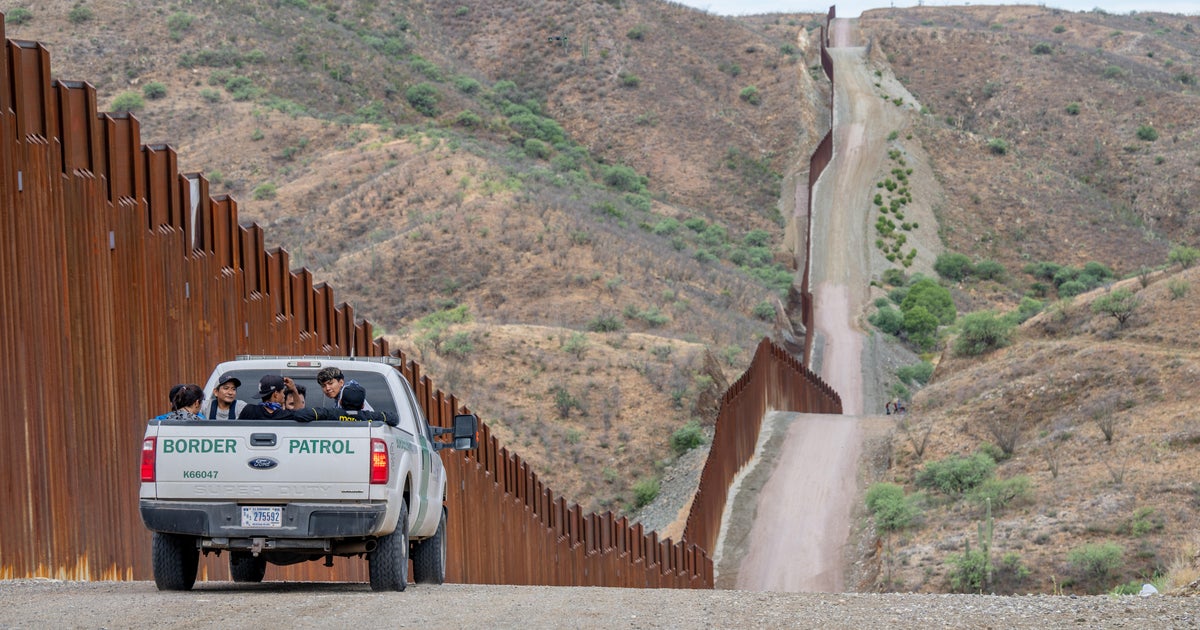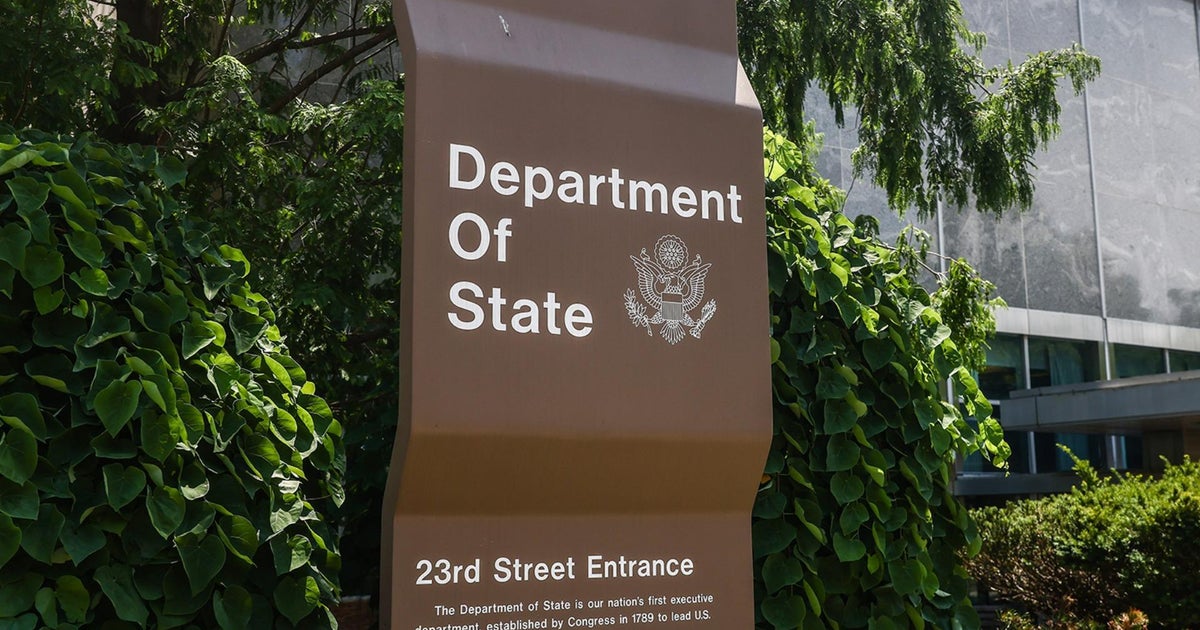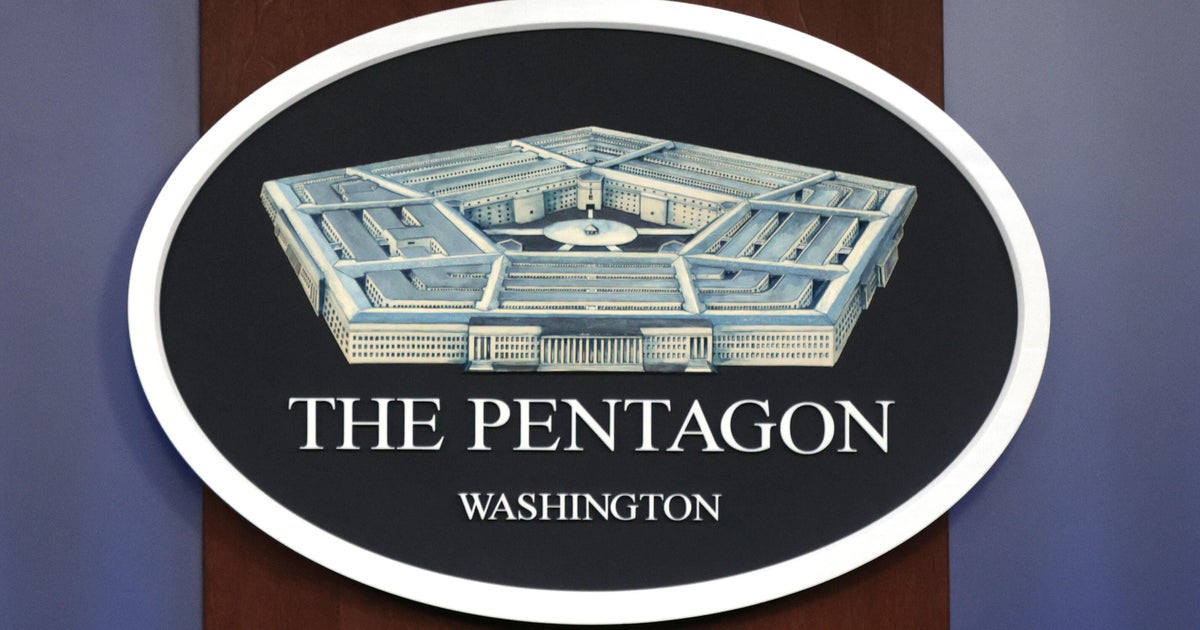Advocates say "Remain in Mexico" policy turns migrants into a "marketable commodity"
This is the third and final installment in a series on the Trump administration's controversial "Remain in Mexico" program and its impact on thousands of asylum-seeking families. Read parts one and two here.
El Paso, Texas — In the late winter and spring of this year, the migrant shelters in this Texas border city were overwhelmed. Local immigration authorities were releasing hundreds of asylum-seeking families, most of them from Central America.
"We were dealing with 800, 900, 1,000 people that were being released to us per day," Ruben Garcia, the executive director of the Annunciation House network of shelters, told CBS News.
For years, Garcia and his organization have been communicating with the Immigration and Customs Enforcement (ICE) and Border Patrol units in this sector to ensure the families released by the agencies get temporary housing and assistance while they arrange for travel to reunify with family members living across the U.S.
Although he acknowledged that helping such large groups of migrants was a monumental task, Garcia stressed that his organization and local partners were able to do so, including by paying more than $1 million in hotel room fees when there was no space at the shelters. Over the past 10 months, he said Annunciation House has housed more than 150,000 migrants, most of whom left El Paso within two days of their release from detention.
In recent months, however, the U.S government has been keeping most asylum seekers on the other side of the border, in Ciudad Juárez, Mexico — where advocates like Garcia say they can't help them. Under a controversial program known as "Remain in Mexico," the Trump administration has been requiring tens of thousands of migrants who seek asylum at certain sectors of the border, including El Paso, to wait in Mexico while their cases are processed in the U.S.
Along with amped up immigration enforcement by the Mexican government, the administration has directly pointed to this policy as one the main reasons apprehension numbers along the southern border have dwindled in the past two months from the height of the recent surge in May. The Annunciation House is now receiving between 50 and 150 migrants per day — a sharp drop from the 1,000 peak — and has closed all but two shelters.
But Garcia said he "utterly" disagrees with the notion that the "Remain in Mexico" policy, formally called the Migrant Protection Protocols (MPP), should continue because it has contributed to lower numbers of families staying at his shelters.
"I don't accept that we should do MPP because we need to lighten the load, be it on us or Border Patrol," he said during an interview at the Casa del Refugiado, a former warehouse that now serves as the main shelter for most migrant families released by immigration authorities in the El Paso area. "My response to that is: when you have human need, you invite more people to help respond to that human need."
Garcia's main concerns about the policy are shared by attorneys, other advocates in the El Paso area and even some of the asylum officers interviewing migrants in the MPP program who express fear of returning to Mexico. They've all denounced the policy as one that forces desperate migrants — many of them vulnerable families with small children and single women — to wait months in Mexico, where they struggle to find housing and lawyers and sometimes face persecution.
"It's especially dangerous for refugees," Garcia said, referring to Ciudad Juárez, as locals refer to the city, one of the most dangerous in Mexico. "There are gangs that would kidnap a refugee and hold the refugee for ransom: 'I've got this woman and her child from Guatemala, Honduras, El Salvador. Give me the number for relatives. Send me $2,000, send $4,000, send me $5,000 or I'll kill them.'"
According to the State Department, violent crime and gang activity are "widespread" in Chihuahua, the state where Ciudad Juárez is located. The U.S. has also recently begun to place asylum seekers in the MPP program when they arrive near Brownsville and Laredo, returning them to Tamaulipas, one of five Mexican states the State Department warns travelers not to visit because of rampant crime and the risk of being kidnapped.
"They are a marketable commodity and our State Department knows that," Garcia added, referring to asylum seekers.
"This places us in danger"
Byron, 32, a native of Guatemala, was walking alongside his daughter Alexandra, 10, in the streets of Ciudad Juárez when he said two men began following them.
"We ran, but I told her we were exercising so she wouldn't get scared," he told CBS News. "When we got home, I still didn't tell her."
Byron is sure the two strangers were kidnappers, whom he said are known to target the thousands of Central American, Cuban and Venezuelan migrants stranded in Ciudad Juárez. Last week, the advocacy group Human Rights First released a report that documented 110 "cases of rape, kidnapping, sexual exploitation, assault, and other violent crimes" against asylum seekers sent to Mexico by the U.S. government.
"This places us in danger, us Central Americans and people from other countries," Byron said of the "Remain in Mexico" policy. "Here in Juárez, it is dangerous. You can't walk outside and feel safe."
The Guatemalan father and his daughter have their first hearing in El Paso's immigration court in mid-September, but he's contemplating returning to Guatemala. He said he can't work in Mexico because he has no one he trusts to take care of Alexandra. Like the vast majority of migrants in the program, he also has not been able to find a lawyer to take up his case.
Despite these barriers, Byron said he will remain in Juárez for as long as he can for one reason: His wife, Sandra, 32, and other two children, Yoshua, 13, and Angelina, 8, are in Alabama with his mother.
After leaving their home in Guatemala's Petén Department, the family arrived together in Ciudad Juárez in early July, but Sandra, Yoshua and Angelina were detained by Mexican immigration officials and deported to Guatemala. Byron and Alexandra waited for them to come back to Juárez, where they reunited in late July for a few hours. But they became separated once again.
Sandra, Yoshua and Angelina crossed the border in the El Paso sector without Byron and Alexandra — as instructed by the people they paid for the journey — and were briefly detained but later released by U.S. authorities.
Byron and Alexandra did the same a few hours afterwards, but after being detained, they were placed in the MPP program and returned to Mexico, where they have been waiting ever since. Sandra, Yoshua and Angelina, meanwhile, boarded a series of buses to get from El Paso to Florence, a city in northwestern Alabama where Byron's mother has been living for a few years.
Although the program has guidelines as to who can and can't be returned to Mexico, advocates and attorneys say the decision by U.S. border officials to place someone in MPP is completely discretionary, ensuring that some fortunate migrants, like Sandra and her two children, are allowed to stay in the U.S. as their cases are adjudicated, while others, like Byron and Alexandra, aren't.
"It appears to be completely random, like roughly a duck-duck-goose type of a thing," said Taylor Levy, an immigration attorney in El Paso. "There's no explanation or rhyme or reason for why they were not put into the program. It appears to be just luck."
Despite being sad about the family's separation and his current predicament in Ciudad Juárez, Byron said he's happy that his wife and two of his children are now in the U.S.
Sandra, however, said the family did not make a weeks-long, perilous trek to the U.S.-Mexico border to be separated. "Right now, we are all desperate," she told CBS News. "We've never been separated for such a long time. My little girl misses her dad."
This week, Sandra has been taking Yoshua and Angelina to a local clinic to get their vaccines. The two children will be starting school in Alabama next week. They do not want leave the U.S., but Sandra knows returning to Guatemala is a possibility if her husband's stay in Ciudad Juárez is prolonged or if he and Alexandra are denied asylum.
"I don't know what we will do," she said, referring to the potential scenario in which Byron and Alexandra are not allowed to the enter the U.S. "We might return to Guatemala."
"Playing politics with the lives of human beings"
Unlike most of the administration's unilateral efforts to deter migration — including two sweeping regulations to restrict asylum at the border — the courts have allowed the "Remain in Mexico" policy to continue. It was briefly blocked by a federal judge but the Ninth Circuit ruled in May that the administration could proceed with the policy as it considers the merits of the legal challenge mounted by several advocacy groups.
The Ninth Circuit is scheduled to hear oral arguments in early October, meaning the MPP program will most likely remain in place in the coming months.
Along with El Paso, the policy has been implemented at border sectors near San Diego, Calexico, Laredo and Brownsville — located in the Rio Grande Valley, the most heavily patrolled section of the frontier. Since it reached an agreement in June with the Mexican government to avert President Trump's threats to impose tariffs on Mexican goods, the Trump administration has pledged to expand the MPP program along the entire border.
When the policy made its debut in San Diego in December of last year, the Department of Homeland Security (DHS) cited a "migration crisis" at U.S.-Mexico border stemming primarily from the months-long, unprecedented influx of Central American families and unaccompanied children. The agency said the program was designed, in part, to deter "false" asylum claims and devote "more attention on those who are actually fleeing persecution."
CBS News reached out DHS with a series of questions regarding where the policy would be implemented next and whether the program would continue indefinitely, even with significant declines in apprehension numbers. CBS News has not received a response.
Unless blocked by the courts, Garcia, Annunciation House's director, said the "Remain in Mexico" policy will continue to place asylum seekers in harm's way and prompt many of them to give up on their claims and return home. The Mexican government has already been operating a program to transport asylum seekers turned back by U.S. border officials back to their home countries in Central America.
"MPP has absolutely nothing to do with immigration policy, it has nothing to do with asylum, it has nothing do with justice. It has everything to do with politics," Garcia said. "We are playing politics with the lives of human beings."
Editor's note: The names or surnames of migrants featured in this series have been omitted because they currently have ongoing cases in immigration court.








